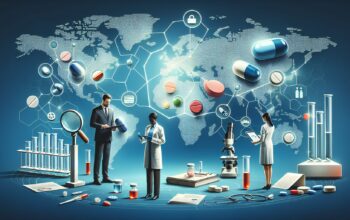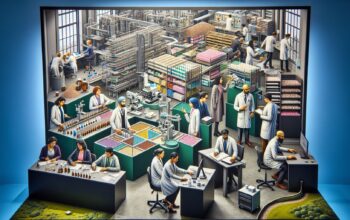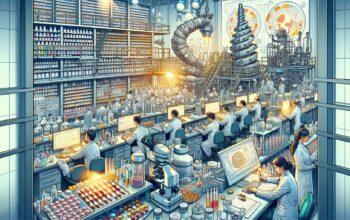In recent years, advancements in artificial intelligence (AI) have enabled researchers to develop powerful algorithms for drug discovery and development. AI-driven drug discovery for infectious diseases is a process of AI-controlled drug design, screening, and data analysis to quickly and accurately identify promising drug candidates for new treatments. Drug discovery for infectious diseases is a time-consuming, expensive, and difficult process that requires a great deal of resources. Artificial intelligence, however, offers a solution in the form of automated, fast, and accurate drug discovery for infectious diseases.
Hows AI-driven Drug Discovery for Infectious Diseases Works?
AI-driven drug discovery looks at large amounts of data related to drug-disease interactions, including chemical and biological information. AI algorithms then analyze this data and generate hypotheses about potential drug-disease interactions. These hypotheses can then be tested in the laboratory to identify new drug candidates. AI-driven drug discovery can also help to accelerate the drug development process by providing insights into the pharmacokinetics, metabolism, safety, and efficacy of existing drugs.
AI-driven drug discovery is based on a branch of deep learning called “reinforcement learning.” This type of machine learning algorithm is designed to learn from reward-based feedback that it receives from its environment. For example, if an AI-driven drug discovery algorithm is presented with a large dataset of drug-disease interactions, it may analyze this data and generate hypotheses. It can then use reward signals, such as successful drug candidates, to adjust its hypothesis and optimize drug discovery outcomes over time.
Benefits of AI-driven Drug Discovery for Infectious Diseases
Organizations of all sizes are looking to AI-driven drug discovery for infectious diseases as a means of speeding up the process of discovering new and effective drugs. AI-driven drug discovery offers several advantages over traditional drug discovery processes, such as:
- Speed: AI-driven drug discovery algorithms can analyze large datasets quickly, enabling researchers to find potential drug candidates more quickly than with traditional methods.
- Accuracy: AI-driven drug discovery algorithms are able to generate highly accurate hypotheses about potential drug-disease interactions.
- Cost: AI-driven drug discovery processes are cost-effective, as they require fewer resources and personnel, and offer improved accuracy.
- Expertise: AI-driven drug discovery algorithms can be used to identify potential drug candidates that might not have been caught by traditional research methods.
Applications of AI-driven Drug Discovery for Infectious Diseases
AI-driven drug discovery is being used in many areas of drug development, including:
- Pathogen identification: AI-driven drug discovery can be used to quickly identify pathogens, such as bacteria or viruses, that are causing a disease.
- Drug design: AI-driven drug discovery algorithms can be used to design small molecules and biologics that have desired therapeutic properties.
- Preclinical testing: AI-driven drug discovery algorithms can be used to quickly identify potential toxic effects of drugs in preclinical tests.
- Drug repurposing: AI-driven drug discovery algorithms can be used to identify existing drugs that may be effective against new diseases.
AI-driven drug discovery is also being used to develop new therapeutic approaches for managing infectious diseases, such as vaccines, therapies that target specific proteins, and delivery systems for new drugs.
Conclusion
AI-driven drug discovery offers powerful tools for the development of new and effective drugs for the treatment of infectious diseases. AI-driven drug discovery algorithms are able to analyze large datasets quickly and accurately, enabling researchers to identify potential drug candidates more quickly than with traditional methods. Additionally, AI-driven drug discovery can help to accelerate the drug development process by providing insights into the pharmacokinetics, metabolism, safety, and efficacy of existing drugs.
AI-driven drug discovery is also being used to develop new therapeutic approaches for managing infectious diseases, such as vaccines, therapies that target specific proteins, and delivery systems for new drugs. As AI-driven drug discovery technologies continue to develop, it is expected that they will become increasingly important in the process of drug discovery and development for infectious diseases.


